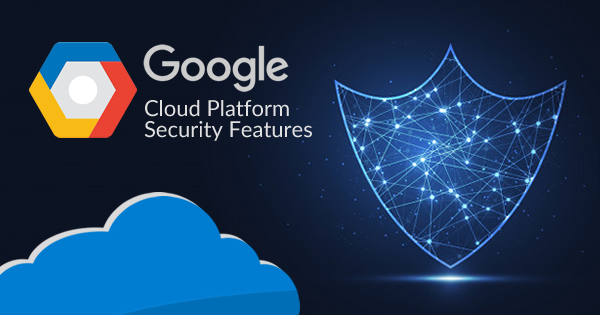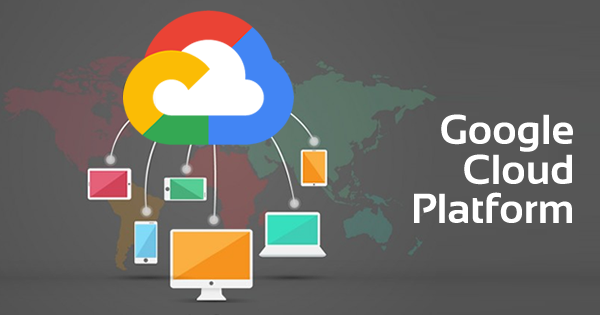The significance of cloud data security is evident as one of the critical elements for the adoption of cloud computing. Different threats to the cloud and emerging vulnerabilities present critical issues for business owners aspiring for cloud migration. The assurance of Google cloud security is one of the prominent reasons for the increasing adoption of Google Cloud platform.
According to the 2019 Cloud Security Report, data loss and leakage is the most prominent cloud security concern for cybersecurity professionals. The most notable vulnerability to cloud security is evident in unauthorized access through inappropriate access controls and misuse of employee credentials.
Other prominent issues such as misconfiguration of the cloud platform, insecure interfaces and APIs, compliance, and lack of transparency in infrastructure security. The experience of Google and Google Cloud Platform security features provide safeguards to business owners against these cloud security threats. Let us take a look at the different security features found on GCP.
Follow the comprehensive guide for Google Cloud professional cloud security engineer certification preparation and get ready to pass the exam!
Various IT leaders and managers are nervous regarding the migration of their legacy systems to cloud computing. The prime reason for this being cloud security concerns, the features of Google cloud security tend to provide relief. IT security managers have to understand that security breaches in the GCP infrastructure are extremely rare. Google retails responsibility for security of infrastructure of Apps services alongside allocating responsibility to customers for safeguarding their instance of the service. The shared responsibility model serves as the foundation of security on GCP.
Trust Principles of Google Cloud Platform Security
Prior to an understanding of Google cloud platform security features, let us reflect on the trust principles for Google Cloud Platform.
- The priority on security is the foremost trust principle that Google Cloud Platform adheres to. Google offers prompt notifications to system administrators and IT security engineers regarding any security breaches that could have compromised data.
- GCP security offers complete control over data to customers at all times. Customers can remove or access the data on the Google Cloud Platform at any time. Google processes customer data only according to the instructions of the customer.
- It is a clear, evident fact that Google makes a large share of its revenue from advertising. However, Google maintains a strict demarcation between the data on the Google cloud and data used for advertising.
- Information regarding locations of Google’s data center is publicly available, thereby providing transparency regarding the storage of customer data on Google cloud. Furthermore, the distribution of Google’s data centers throughout the world offers promising safeguards against natural disasters, especially for providing higher availability.
- Independent auditors evaluate, certify, and validate Google cloud security practices. Therefore, compliance with international security and privacy standards further strengthens the assurance of security on Google Cloud Platform.
- Most important of all, Google does not provide ‘backdoor’ access to customer data to any government agency or entity. Google publishes a report regarding government requests for access to customer data.
Now, let us take a closer look at the GCP security features. Google is known for its global scale technical infrastructure that provides exceptional security throughout the complete information processing lifecycle. Google uses its infrastructure for secure service deployment, secure data storage with end-user privacy controls, secure intra-service communication, and safe operation by administrators. Furthermore, the infrastructure is also ideal for building Google internet services, including enterprise services such as Google Cloud Platform and consumer services such as Gmail.
Aspired to get a Google Cloud certification to take your career one level up? Check out Google Cloud certification training courses.
Layer-wise design of Google Cloud Platform Security
The most notable highlight of Google Cloud security is the infrastructure design in progressive layers. The security layers start from the physical security at data centers and also encompass the hardware and software in the infrastructure. Furthermore, the security layers also focus on technical restrictions and processes for ensuring operational security.
Google invests profoundly in the security of its infrastructure, thereby providing the assurance of reliability with GCP security. Multiple engineers work for security and privacy throughout the globe, including many recognized industry authorities, for ensuring maximum performance of Google Cloud Platform Security. An understanding of features in Google cloud platform security could expand further with an investigation of Google infrastructure security layers.
Here are the six layers in the Google Cloud security infrastructure.
- Hardware infrastructure.
- Service deployment.
- User identity.
- Storage services.
- Internet communication.
- Operational security.
The Google cloud platform security has distinct functions at each level of this infrastructure. For example, the layer of user identity primarily involves the function of login abuse safeguards and authentication.
The functions of the hardware infrastructure layer are:
- Security of physical premises.
- Hardware design and provenance.
- Security of Boot Stack and Machine Identity.
The functions of the service deployment layer are:
- Access management for End User Data.
- Inter-service communication encryption.
- Inter-service access management.
- Service identity, integrity, and isolation.
The functions of the user identity layer are:
- Authentication.
- Login abuse protection.
The functions of the storage services layer are:
- Encryption at rest.
- Data deletion.
The functions of the internet communication layer are:
- DoS protection.
- Google Front End.
The functions of the operational security layer are:
- Reduction of insider risk.
- Safe software development.
- Security of employee devices and credentials.
- Breach detection.
Google Cloud Platform promises to be better in the coming years. Let’s explore what’s next the Google Cloud will bring i.e. what are the upcoming Google Cloud Trends!
Top Features of Google Cloud Platform Security
So, Google cloud platform security is a credible factor for business owners to consider the prospects of cloud migration. What do the features of Google’s infrastructure security offer towards the security of customer data on Google Cloud Platform? The following section regarding security features on the GCP can shed additional light on this discussion.
-
Security on a physical level
The physical security of GCP data centers has been a recurring theme in this discussion. A particular fraction of employees ever get the chance to visit GCP data centers. The exceptional security level of the data centers includes biometric detectors, security lasers, cameras, and alarms.
-
Safeguards from privileged access attacks
The design of every single element of Google Cloud security in-house is another one of its notable features. As a result, customer data stays safe from privileged access attacks that generally occur through boot loader, the OS image, or the hypervisor. Google data centers have thousands of servers connected with a local network.
Furthermore, Google chooses and verifies building components from different vendors and designs custom, secure server boards, and networking devices. In addition, the cryptographic signatures on all low-level components such as base OS, BIOS, kernel and bootloader help in ensuring that the correct software stack boots up.
-
Data disposal features
Data disposal is possible through thorough, logical wiping of persistent disks and other storage devices frequently. The data disposal process also involves inspection of the wiped disk by another authorized individual alongside logging and storing the outcomes of the disk wiping. The wiped driver is then sent for reuse. If the disk is found with damages, then it is stored safely and is not subject to reuse. All the facilities for data disposal involve a weekly audit.
-
Encryption of data
One of the prominent and top google cloud security features is data encryption. As a default measure, GCP provides encryption for all customer data at rest and in motion. The user does not have to do anything with the facility of automatic encryption on Google cloud platform security. For example, AES-256 serves encryption for persistent disks with the facility of encryption of the keys with master keys. Google handles the management of keys and rotation.
-
Service deployment security
Regarding service deployment, Google Cloud Security provides the assurance of three essential attributes for security service deployment. Every service on Google infrastructure has a service account identity. Therefore, each service has to provide cryptographic credentials associated with it to prove its identity during remote procedure calls (RPC).
Clients use such identities for connecting to an intended server and restricting access to data and methods for specific clients. In addition, service deployment also involves integrity as one of the top features in google cloud platform security. The cryptographic authentication and authorization technique of Google for providing strong access control at the abstraction level is definitely a promising cloud security feature.
Other security features on the Google cloud platform to ensure the integrity of customer data and GCP services are ingress and egress filtering facility at different points in the Google network to prevent IP spoofing. Another notable highlight among features for Google Cloud platform security in secure deployment refers to isolation.
The sandbox technique of Google helps in isolation of services running on the same machine. The primary applications of the technique include language and kernel-based sandboxes, hardware virtualization, and Linux user separation. Moreover, GCP also provides security for the operation of sensitive services such as cluster orchestration in Google Kubernetes Engine for specifically dedicated machines.
Preparing for Google Cloud interview? Check out these Google Cloud interview questions and get ready to ace the interview.
Bottom Line
The efficiency of Google Cloud security depends a lot on the Google security infrastructure, as evident in this discussion. One of the best highlights of this discussion is the insight into the shared responsibility model for GCP security. Google definitely provides credible measures to ensure the security of GCP.
However, customers have to follow some best practices on their part for safeguarding their instances of GCP. For example, the use of managed services such as Cloud Functions and Dataflow to have smaller attack vectors. Other best practices include the use of hardened bastion hosts like load balancers and SSL proxy load balancers or the use of NAT gateways to avoid public IPs and ensure network isolation.
If you are a Google Cloud Security professional, you should validate your skills with a certification. To help you give your skills recognition and get certified, we offer best-in-industry Google Cloud certification training courses. Take the right decision and get ahead in your career!
- Cloud DNS – A Complete Guide - December 15, 2021
- Google Compute Engine: Features and Advantages - December 14, 2021
- What is Cloud Run? - December 13, 2021
- What is Cloud Load Balancing? A Complete Guide - December 9, 2021
- What is a BigTable? - December 8, 2021
- Docker Image creation – Everything You Should Know! - November 25, 2021
- What is BigQuery? - November 19, 2021
- Docker Architecture in Detail - October 6, 2021



